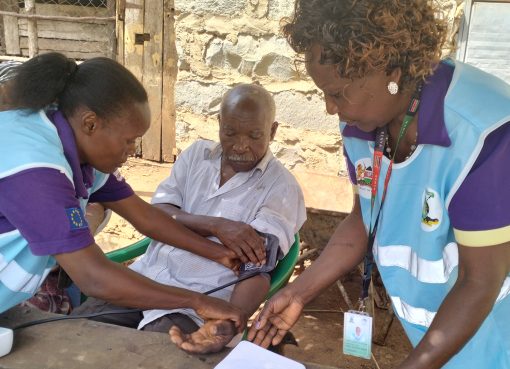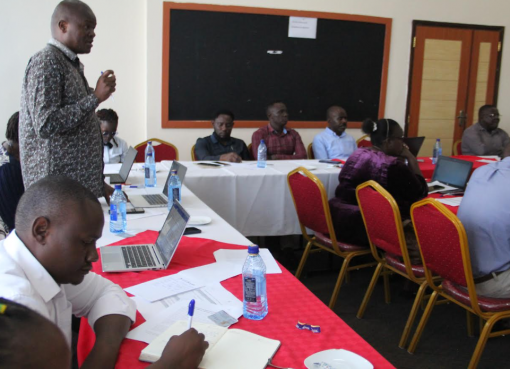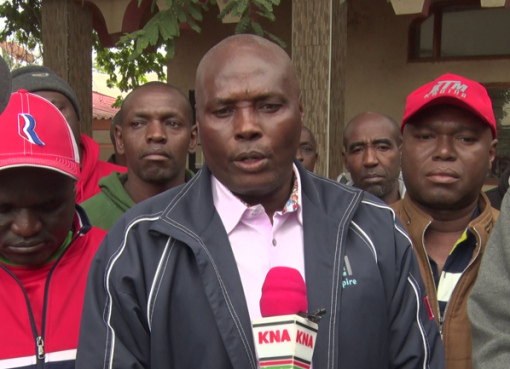We have heard of cancer taking an upward trend recently to the extent of the Kenya Medical Research Institute (KEMRI) being compelled to investigate the high prevalence of cancer in Riaki and Kiegoi villages in Igembe South in Meru County.
This follows a media story last month highlighting the plight of residents in the two areas that it described as ‘cancer villages’.
But cancer aside, this week I was speaking to my brother who retired from civil service barely a year ago and was astonished to hear him mention that he is now very old. Maybe old could have been the ideal term since certainly one does not retire from civil service at youth.
But very old is a serious exaggeration because my late father, God rest his soul in peace, outlived his retirement by a good twenty four years. I am sure he is turning in his grave on hearing that his eldest son who he entrusted with all the family secrets is claiming to be aged even before one of his brothers has gotten married.
My late father aside, I wondered whether many of the current generation or KEMRI could approach one of my father’s age-mates who is now 92 and still rides his bike to and from his Jua-Kali workshop for a word of advice.
At Katheri market along the Meru- Marimba road in Meru Central Sub-county, you will find a Jua-Kali shop with an assortment of wares ranging from charcoal cooking stoves, rubber fasteners, sweeping brooms and sufurias displayed at the pavement right next to the tarmac road.
A large bench fastened with a vice is also conspicuous besides a pressure pump and some bicycle spares. If you are a visitor you will be welcomed by an elderly man who will most likely be repairing a bicycle or plummeting metal sheets for repairing sufurias.
Nothing might baffle a casual observer but a keen eye might notice that the elderly man works slowly but with military precision as he handles his Jua-Kali paraphernalia to repair the bicycles and sufurias.
This still may appear normal until you speak to him and hear that he has been working at the Jua-Kali workshop since the late 1980s when he retired from civil service at the age of 55.
This is Harun M’Turuchiu commonly known as Kariri, who I have known since I was six years old when he would be sent my father in Mucheene Forest Scheme to drop me home in Katheri in his Landrover, the only mode of transportation known by many who plied the Kithirune –Kibirichia route in the early 1970s. Kariri was a colleague to my late father at work in Mucheene Afforestation Scheme where they worked as laborers since the colonial period.
He was among the very few labourers who owned a landrover and since he knew my home very well, Mzee would frequently send him to deliver me home to my mother where we had relocated from his workplace in 1972.
I still remember with nostalgia the rides to our home in Katheri when my young mind would be mesmerized by the movement of trees backwards as we cruised through Mount Kenya Forest that separated our ancestral home in Meru and Buuri as the areas were being referred to by then.
The people then never considered Buuri which is the current Buuri Constituency as part of Meru because it was only grazing land with no settlement before huge tracts of land were dished to white settlers as reward for their involvement in the Second World War.
Kariri retired from the civil service in 1985 and as if with an anticipation of the many years ahead of him decided to start a Jua-Kali workshop with the proceeds of his terminal benefits. Little did he know that what he started as a hustle to keep him occupied after he was pensioned off was to live to be witnessed by his great grandchildren.
Kariri is the proud father of five sons and a daughter Monica who used to be friends with my elder sisters even during our time at Mucheene Forest Scheme way back in the early 1970s.
His late son Mwenda was only a year older than myself and Ayub Kirimi the current Kinyo Coffee Factory Manager was a year younger. I can still vividly remember the days I would be sent by my step mother to fetch fire from their home early in the mornings. They all live in Katheri currently save for Monica who I cannot recollect where she got married.
But what is the secret behind this kind of resilience that has enabled Kariri to live to see his great grandchildren while still strong enough to ride his bike to and from work. I haven’t had an interview with him of late but I remember him cautioning me many times that alcohol and cigarettes do not add any value to one’s life.
“Mutwiri my son, do not waste your money and health on alcohol and cigarettes. I used them briefly in my youth but finally realized that they were not adding any value,” he told me this several times.
I remember one day he lamented that the educated youth are the most difficult to change despite them being more informed of the dangers of alcoholism and cigarette smoking. Well your guess could be as good as mine because quite a number of medical practitioners are alcoholics and chain smokers.
Kariri was also against promiscuity and surely had only one wife despite a number of his age-mates having two or more spouses. I remember him one day asking me ‘Why would a man move around looking for other women when he already has one at home?’
But is this all. I guess the food we eat is very crucial to our health. For the time I have known the elderly man, I have never seen him eat in a hotel. Even for some few days when he slept in his workshop at the market place, Kariri always had his food brought by his late wife and later his sons for his lunch and dinner.
Some mashed potatoes and some cereals or fresh peas or beans. Never fried pleasantries that our wives are feeding us today. This was actually the staple food for those who lived at Mucheene Forest Scheme before its residential quarters was closed down and employees sent to rent their own residences in 1989.
We are yet to get the findings of the KEMRI’s probe into the high prevalence of cancer in Riaki and Kiegoi but prior research has established that the rising prevalence in lifestyle diseases has more to do with our diets than any other cause.
Demography has it that life expectancy is decreasing by the day everywhere in the world. It does not require nuclear science to realize that alcoholics and drug abusers appear wasted and most of them enter the grave at a relatively early age.
As we ponder over the causes of poor memory and irrational decisions as many of us reach pensionable age, let us watch our eating habits. And for those who mistakenly accept that they are very old at sixty or thereabouts, they could borrow a leaf from this elderly man who rides his bicycle to and from work every day.
By David Mutwiri




